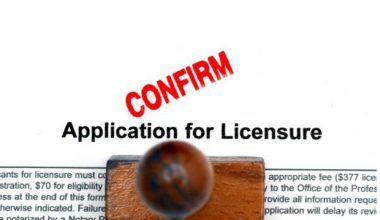Medical coders operate in hospital settings behind the scenes. If you have completed educational instruction to become a medical coder, you should think about acquiring a coding certification. In this article, we will be expanding the whole sphere of medical billing and coding certification including how you can earn a professional medical bill and coding certification either through online classes or not. Let’s get to it.
What Is a Medical Coder?
A medical coder is essentially a translator who reviews patients’ charts, including all operations, tests, surgeries, and diagnoses, and then codes them according to policy and practice. This information is subsequently forwarded to the billing department of the healthcare system as well as the patient’s medical insurance.
The medical coder is an important member of the medical team because they evaluate the patient’s file and translate everything from that file into universal codes that insurance companies require.
It is the medical coder’s obligation to guarantee that the correct code is used every time, as this is the only way to assure that insurance companies are invoicing correctly.
What Are Medical Coding Certifications?
Medical coding qualifications are widely regarded as the industry’s gold standard. While certification is not required for all occupations, it is widely accepted by companies, government organizations, and medical associations.
Although medical coding certification is not a legal prerequisite for employment as a medical coder, professionals who have certificates are more likely to get hired and earn a higher income than those who have yet to obtain one. Furthermore, certification displays a fundamental basic understanding of the three aforementioned main code sets, implying that trained medical coders can be more efficient and give more value to their employers.
Prospective medical coders can pick from a number of different certificates. The most common, however, are the Certified Professional Coder (CPC), Certified Coding Specialist (CCS), and Certified Medical Coder (CMC), each of which is offered by a different organization. Because coding work varies widely based on a coder’s healthcare context, students pursuing certification must choose the one that best meets their long-term aspirations.
Requirements to Earn a Medical Billing and Coding Certification
While the particular requirements for obtaining this certification vary depending on the certifying body or firm, there are a few general requirements, which include:
- Education: Prior schooling is frequently required to work in any medical specialty. Many certification programs require or prefer that you complete your online medical billing and coding courses and have a college degree, such as an associate degree, from an approved university.
- Experience: Many certification programs need you to have prior job experience in the billing and coding sector. This experience might demonstrate that you are already familiar with the fundamentals of the sector and its requirements.
- Exam: Before you may get your certification, most certifying bodies require you to complete one or more exams. The duration of the exam and the number of questions on it are normally determined by the organization.
Benefits of Earning a Certification in Medical Billing and Coding
There are numerous advantages to obtaining this certification, including:
- Greater career advancement: Certain certifications may help you develop your career faster, qualifying you for higher-paying roles with more opportunities to demonstrate your leadership talents.
- Opportunities for networking: While completing a certification program, you may be able to network with other aspiring billing and coding specialists as well as individuals who already have substantial expertise in their area.
- Flexible options: Billing and closure professionals can choose from a variety of qualifications that best match their career interests and scheduling needs.
Types of Medical Coding Certifications
There are various medical coding certificates available that assess your knowledge of one of three code sets and three levels of code.
Medical coding qualifications include the following:
- Certified Professional Coder (CPC)
- Certified Outpatient Coding (COC)
- Certified Inpatient Coder (CIC)
- Certified Coding Specialist (CCS)
- Certified Medical Coder (CMC)
Let’s look at each certification separately to have a better understanding of the distinctions.
#1. Certified Professional Coder (CPC)
The American Academy of Professional Coders has accredited the Certified Professional Coder (CPC).
The CPC is appropriate for medical coders who want to work in an outpatient situation, such as a clinic or doctor’s office. The CPC, according to the AAPC, increases earning potential by more than $25,000 over other annual incomes. It is also the most widely used medical coding certification.
#2. Certified Outpatient Coding (COC)
The American Academy of Professional Coders recognizes the COC certification (previously known as the CPC-H) as indicating a high degree of expertise in coding particularly in hospital groups, ambulatory surgery facilities, and hospital billing and coding departments.
The COC certification is designed exclusively for coders who work in hospitals.
#3. Certified Inpatient Coder (CIC)
The American Academy of Professional Coders has accredited the Certified Inpatient Coder (CIC) as the only certificate dedicated completely to inpatient hospital/facility coding.
This certification, as previously said, is intended for those who work in an inpatient hospital or facility and requires a specialized understanding of inpatient codes, medical procedures, and inpatient procedures. It necessitates the proper use of ICD-10-PCS procedure codes and ICD-10-CM diagnosis codes for coding and billing inpatient hospital services to insurance companies.
#4. Certified Coding Specialist (CCS)
The Certified Coding Specialist (CCS) certification, which is accredited by the American Health Information Management Association (AHIMA), classifies medical data used by hospitals and medical providers to get reimbursement from insurance companies or government programs such as Medicare and Medicaid.
The Certified Coding Specialist (CCS) credential is intended for medical coders who have experience coding both inpatient and outpatient records.
#5. Certified Medical Coder (CMC)
The Practice Management Institute (PMI) offers the Certified Medical Coder (CMC) certification, which is one of the most prevalent and popular medical coding certificates.
Despite its popularity, this certification is considered more challenging than other medical coding certification tests due to the testing format. The CMC certification is only available to medical coders working in the outpatient setting.
How to Choose the Right Certification?
With so many different medical coding certifications available, it might be difficult to decide which one is right for you.
You’ll want to get certified in the field you wish to work in. The CPC, for example, is for the outpatient situation, whereas the COC is for the hospital inpatient setting. Certification also displays fundamental medical coding skills. Medical coders can obtain numerous certificates as long as they complete the requirements for each.
Career Opportunities in Medical Billing and Coding
Following completion of your online Medical Billing and Coding Undergraduate Certificate, you may wish to pursue one of the following careers:
#1. Medical Records and Health Information Technician
These technicians use medical billing and coding skills to organize, maintain, and code health information data, ensuring that records are easy to access and interpret.
#2. Billing Specialist
Billing professionals assist care facilities in staying operational by supervising the billing process for clients and patients, which includes processing and managing payments and financial information.
#3. Insurance Claims Specialist
These persons help with claim processing and may act as a liaison between the insurance company, the provider, and the insured. Claims specialists assist patients in receiving the correct contribution from their insurance and ensuring that they do not overpay for their operations.
#4. Medical Biller
Medical billers oversee payments and insurance claims for providers, ensuring that payments are received on schedule and appropriately reflect the operations that a patient got.
#5. Collections Specialist
Collections professionals assist patients to resolve bills, collecting payments, and correcting any billing or coding problems.
#6. Coding Professional
Coding specialists verify that patient data are coded correctly and manage billing with patients and insurance companies.
How to Become a Medical Coder
If you’re thinking about a career in medical coding or are just getting started and don’t know where to begin, we’re here to help you chart your route. You can achieve success by doing the following practical steps:
#1. Test-Drive Your Career Choice With a Few Basic Questions
Before making a professional selection, it is beneficial to complete a preliminary self-assessment. When it comes to medical coding, your first inquiry should be, “Am I genuinely interested in healthcare?”While you will not be required to attend medical school or acquire a postsecondary credential in life sciences, you will need associated education to grasp medical terminology.
#2. Take a Medical Coding Training Course
Training is essential for becoming a successful medical coder, as it is for any new vocation. The next step is to enroll in a medical coding training program.
There are four sorts of medical coding certifications, so you must decide which one you want to pursue. But don’t worry. This is a simple and entry-level decision.
#3. Study for the Exam
Because the majority of medical coding students choose to begin their careers as certified professional coders (CPCs), we’ll concentrate on this one career path to simplify the processes that follow, albeit these steps apply to other core certifications.
It is not easy to pass the CPC exam or any other medical coding certification exam. You should be well-prepared for test day. Consider using one or more study aids to supplement your medical coding knowledge while you’re studying.
#4. Network at Your Local Chapter
Networking is one of the most effective strategies to locate a new job. CPC students should get involved with their local AAPC organization as soon as they are certified.
Local chapters are crucial in keeping qualified coders and medical coding students up to date on developments in respective industries. Participation allows you to connect with professionals, mentors, and peers. It offers the opportunity to learn from guest speakers and, once qualified, to take on leadership roles and other responsibilities.
#5. Get a job
Newly certified professional coders obtain CPC-A accreditation after completing the CPC exam. The letter “A” denotes apprenticeship status. Typically, removing this status necessitates two years of coding experience.
#6. Further Your Career — Get Another Certification
If you’ve been a medical coder for a few years and want to progress your profession, you might consider adding a second core certification to your wheelhouse. Earning your COC certification as a CPC, for example, is a wise choice given the trend of hospital and physician practice consolidation.
How Long Does It Take To Get a Certification in Coding?
Coding boot camps normally last three to four months, however some last six months or longer. Bootcamps offer structured programs designed to prepare students for entry-level coding positions.
Is Certified Professional Coder Worth It?
Yes. If you’re new to medical billing and coding, CPC certification can demonstrate to potential employers that you know how to use and apply conventional coding methods.
Which Is Better CPC or Ccs Certification?
The CCS certification exam is generally more demanding than the CPC certification exam. Both examinations are weighted and have important differences. The CPC exam is objective, whereas the CCS exam is both.
What Pays More CPC or Ccs?
CCS professionals sometimes earn more than CPC professionals since they work with more complicated code. They are also in charge of activities such as reimbursement assurance and diagnostic coding, which, depending on your background, can be more difficult than the procedural coding that CPCs normally do.
What Is the Highest Salary of CPC?
As of May 1, 2023, the average CPC pay in the United States is $58,606, however, the range frequently ranges between $51,506 and $67,306
Which Medical Coder Makes Most Money?
High-Paying Medical Coder Jobs include:
- Coding Director. Salary range: $61,000-$101,000 per year.
- Coding Manager. Salary range: $67,000-$97,500 per year.
- Medical Coding Manager. Salary range: $60,000-$94,000 per year
How Much Does a CPC Medical Coder Earn in USA?
The average beginning salary for a Certified Professional Coder® (CPC) is $45,701 per year across all states and territories. As a standalone influence on compensation, experience adds up to 47 percent to salary throughout the length of a CPC’s career. The greatest advances are made in the first 15 years.
Who Is the Highest-Paid Coder?
According to the U.S. Bureau of Labor Statistics (BLS), computer and information systems managers are the highest-paid coding professionals, with a median pay of $151,150 in 2020. This vocation is also expected to expand by 10% by 2029.
Conclusion
Deciding to pursue a medical coding certification might be daunting and time-consuming. However, the advantages for your career and financial future might be enormous. As a result, this book will make the procedure easier to understand because it contains everything you need to know while on the course. Best wishes!
- WHAT IS MEDICAL CODING: What Is It, Examples, Types & What They Do
- WHAT IS MEDICAL BILLING AND CODING: Understanding the Meaning, Process and Course
- CASH ON CASH RETURN: Guide for Real Estate Investors
- BILLING AND CODING: What Is It, Job, Salary & Free Courses
- PAY PER CLICK ADVERTISING (PPC): Costs And Top 7 Agencies






